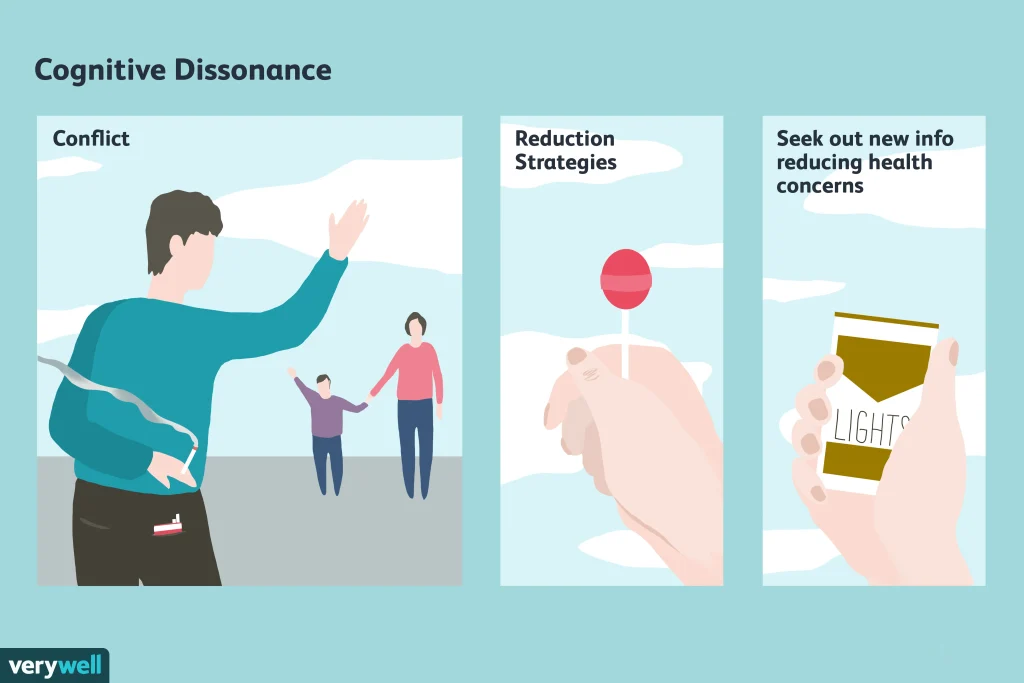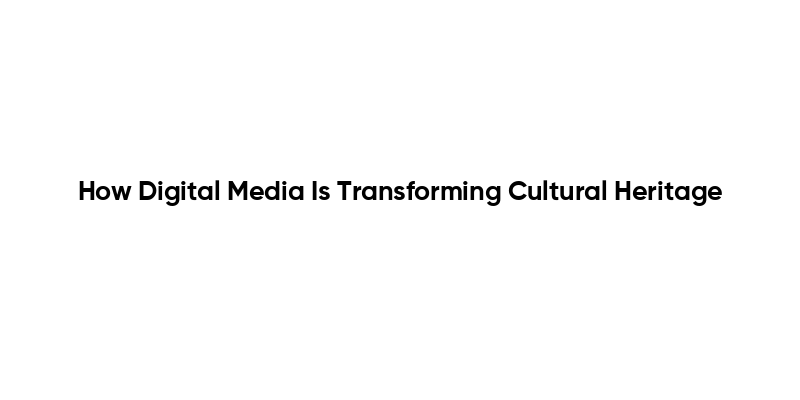Cognitive dissonance, a psychological phenomenon where individuals experience discomfort from holding conflicting beliefs or engaging in behavior that contradicts their values, has never been more relevant in today’s world. The chaotic landscape manufactured by the Trump administration, coupled with the omnipresence of social media, propels people into a state of mental unrest. This dissonance is further exacerbated by the overwhelming influence of AI technology, which distorts reality, leading to confusion and anxiety. As individuals grapple with the implications of their beliefs in the face of information overload, the intersection of mental health and politics becomes increasingly fragile. Understanding cognitive dissonance is key to navigating the complexities of modern life, where truth feels subjective and the implications of our choices weigh heavily on our conscience.
The term ‘mental conflict’ often encapsulates the essence of what cognitive dissonance represents, highlighting the psychological turmoil that arises when our thoughts and actions diverge. In an era dominated by the relentless pace of the Trump administration’s policies, the effects of social networks amplify this discord, challenging our perception of reality. The rise of AI technology has transformed our engagement with information, creating a cacophony that contributes to feelings of disarray and stress. As the boundaries between fact and fiction blur amidst rampant misinformation, we find ourselves confronted with a crisis of belief. It’s essential to explore these mental clashes, as they form the bedrock of our responses to the increasingly chaotic world around us.
Cognitive Dissonance in Modern Politics
In the current political climate, cognitive dissonance has become a prevalent phenomenon, particularly highlighted during the Trump administration. Many individuals find themselves grappling with conflicting feelings and beliefs about the realities presented in the news versus their personal experiences. The sheer volume of information, coupled with sensationalist media coverage and social media echo chambers, creates a disconnect that often leads to mental exhaustion. People want to see the world as it is while simultaneously struggling to reconcile the overwhelming negativity that characterizes contemporary discourse.
This psychological conflict can manifest in various ways, from apathy to disillusionment with political systems. As data becomes manipulated or altered — especially with the rise of AI technology capable of creating deepfakes and hoaxes — this cognitive tension intensifies. Voters may find themselves doubting their perceptions and convictions as they question the credibility of sources. In such an environment, establishing a coherent narrative becomes nearly impossible, contributing to a cycle of engagement and disengagement in the political process.
Social Media’s Role in Information Overload
The influence of social media on public perceptions and discourse during the Trump administration cannot be overstated. Platforms like Twitter and Facebook not only disseminate information at breakneck speeds but also curate it in ways that can foster confusion and misinformation. This relentless exposure to news and opinion creates a landscape of information overload, where distinguishing between facts and falsehoods becomes increasingly challenging. As users scroll through their feeds, they are bombarded with rapid updates, memes, and incendiary commentary — leading to mental fatigue and a sense of being overwhelmed.
What becomes particularly troubling is how social media perpetuates a cycle of reinforcement, where individuals are fed content that aligns with their pre-existing beliefs. When combined with algorithms designed to maximize engagement, this results in echo chambers that stifle genuine discourse and critical thought. As a result, the ability to process and analyze information is hindered, leaving many feeling adrift in a sea of digital noise — ultimately affecting their mental health and political engagement.
The Impact of AI Technology on Perception
AI technology is rapidly changing how we process information and engage with our surroundings. Its ability to generate content — whether images, text, or even misleading news — raises ethical concerns about authenticity and trust. The Trump administration has utilized AI-driven strategies to manage narratives, presenting content that shapes public perception in real-time. This manipulation can create an illusion of reality that is carefully constructed to support specific agendas, leaving many consumers of information unable to differentiate between fact and fabrication.
The implications of AI’s role extend beyond politics into broader cultural contexts, affecting everything from entertainment to personal communications. The normalization of AI-generated assets, such as images of misleading events or personalities, introduces a new layer of complexity in discerning the truth. As the line between reality and illusion blurs, society must grapple with how this technology influences our understanding of the world around us — driving a wedge between genuine human connection and artificial interaction.
Mental Health and Politics: An Unfolding Crisis
The intersection of mental health and politics has become increasingly evident, especially during turbulent times like those witnessed in the Trump administration. Anxiety, stress, and depression are on the rise as individuals grapple with unpredictable and often distressing political landscapes. The constant barrage of news alerts, social media updates, and political commentary can create a sense of despair, especially when individuals feel powerless to affect change. The link between mental well-being and political engagement is undeniable — when people feel overwhelmed, they are less likely to participate actively in civic matters.
Moreover, the ramifications of political discourse impacts mental health at both individual and societal levels. As the public formation of identities becomes increasingly fraught, the pressure to conform to particular ideological stances can provoke feelings of isolation and distress. Individuals may withdraw from open dialogue, resulting in a fragmented societal fabric where differing opinions are met with hostility rather than understanding. This mental health crisis, intertwined with the fabric of politics, demonstrates an urgent need for greater awareness and accessible resources to foster resilience in an increasingly divided world.
Navigating Information Overload in Today’s Society
Information overload has become an ever-present challenge in our digital age, especially in the political realm. The sheer volume of data and competing narratives can create disorientation among users trying to navigate through constant updates. The Trump administration’s use of social media as a communication tool exemplifies how quickly misinformation can spread, contributing to public confusion and frustration. Each cycle of news can feel like a barrage, with critical stories often drowned out by sensationalism or trivial content, leading to a passive audience unable to absorb what truly matters.
Moreover, this constant influx of information often results in cognitive fatigue, where individuals may become desensitized to the realities unfolding around them. As a survival mechanism, some may unplug from news altogether, unwittingly ceding ground to ignorance. It is essential for individuals to establish boundaries around their media consumption and actively seek credible sources to foster informed discussions. By promoting media literacy, society can cultivate an environment where individuals feel empowered to engage thoughtfully and critically.
The Reality of Political Disillusionment
Disillusionment with political systems has become a common sentiment, particularly during the recent tumultuous years marked by the Trump administration. Many citizens feel their voices are disregarded, leading to a pervasive sense that participation in the electoral process may ultimately be fruitless. As various governmental policies and decisions unfold, disillusioned voters struggle to see meaningful change, often falling into apathy or cynicism. The overwhelming pace of political news exacerbates this feeling, where every new headline can overshadow previous developments, leaving many grappling with unresolved issues.
This disconnection fosters a dangerous environment where misinformation can thrive, further alienating those who once felt engaged in civic discussions. When individuals no longer trust the political process or the integrity of the information presented to them, it creates a vacuum that extremist ideologies may exploit. Rebuilding trust in institutions and encouraging civic participation will be crucial to counteracting this trajectory of disillusionment and fostering a healthier democratic process.
The Phenomenon of Fake News
The emergence of fake news has been a defining challenge in the digital age, particularly amid the chaotic political landscape of the Trump administration. With the proliferation of information online, discerning what’s credible versus what’s fabricated has become increasingly complex. Social media platforms, initially hailed as tools for democratizing information, now serve as breeding grounds for misleading narratives that can influence public opinion and behavior. As people unknowingly share or consume this content, it exacerbates confusion and contributes to political polarization.
Combatting fake news requires a concerted effort to promote media literacy and critical thinking skills among the populace. By empowering individuals to verify information before dissemination, society can reduce the spread of misinformation and foster dialogue based on facts rather than hyperbole. Encouraging trust in legitimate sources and established journalism is essential in rebuilding public confidence in democracy and the information that guides civic engagement.
The Challenge of Political Engagement in the Digital Age
Engaging in political discourse has become increasingly challenging in today’s digital landscape, where the rapid dissemination of information can dilute meaningful discussion. The Trump administration exemplified this new paradigm, using social media to connect directly with audiences while bypassing traditional media outlets. This shift has led to a disintegration of nuanced conversations, as users are often met with soundbites or sensational headlines that discourage deeper understanding. Many individuals feel overwhelmed by the relentless cycle of news, making it difficult to participate actively in the political process.
Navigating this new terrain requires adaptability and conscious effort to cultivate informed opinions. Individuals must embrace constructive dialogue, seek out diverse perspectives, and engage with the subject matter substantively. As the barrier to entry into political conversations has lowered, individuals are empowered to bring their voices to the table, but they must also take responsibility for ensuring the quality and integrity of the discussions they engage in to create a more informed populace.
The Intersection of Technology and Mental Well-Being
The intersection of technology and mental health has increasingly garnered attention, especially with the rise of social media and AI technology during politically charged times. Many individuals experience heightened anxiety and stress levels due to the information overload associated with these platforms. The Trump administration’s digital communication strategies often contribute to this climate, where viewers are bombarded with unrelenting updates and debates that can feel inescapable. This digital saturation can have tangible effects on mental well-being, leading to disengagement or even depression as users grapple with their inability to navigate the complexities of their realities.
As technology continues to evolve, it will be imperative to focus on creating supportive environments that prioritize mental health. Developers and users alike must recognize the responsibilities that come with digital interaction and seek to cultivate spaces that promote genuine dialogue and positive experiences. Building a more aware digital community can ultimately empower individuals to utilize technology not just for information, but for supportive interaction, allowing them to thrive mentally as they engage with contemporary societal issues.
Frequently Asked Questions
How does cognitive dissonance manifest in response to the Trump administration’s actions?
Cognitive dissonance can occur when individuals hold conflicting beliefs in light of the Trump administration’s controversial policies. For example, supporters may struggle internally between their values of democracy and the administration’s actions that they perceive as undermining democratic norms, leading to mental discomfort.
What is the impact of cognitive dissonance on mental health amid information overload during the Trump administration?
Information overload can heighten cognitive dissonance, especially during the Trump administration when news cycles were intense. Individuals may feel overwhelmed by contradictory information, leading to increased anxiety and stress, impacting overall mental health.
How does cognitive dissonance relate to social media and the portrayal of the Trump administration?
Social media can amplify cognitive dissonance by rapidly disseminating conflicting narratives about the Trump administration. Users may experience discomfort when confronted with opposing views, complicating their ability to reconcile their beliefs with the diverse opinions found online.
Can AI technology contribute to cognitive dissonance regarding political beliefs during the Trump administration?
AI technology, particularly in relation to personalized content feeds, can create echo chambers that reinforce existing beliefs while simultaneously exposing users to contrary information, contributing to cognitive dissonance as they navigate conflicting viewpoints regarding the Trump administration.
What strategies can help mitigate cognitive dissonance generated by political discourse on social media?
To reduce cognitive dissonance, individuals can seek balanced information sources, engage in open discussions about the Trump administration’s policies, and practice mindfulness to process conflicting emotions, helping them to reconcile their beliefs in a more healthy manner.
| Key Points |
|---|
| Increasing cognitive opacity and disconnection from reality due to overwhelming information from technology. |
| The disorienting effects of current political events and crises, particularly associated with Donald Trump’s presidency. |
| Exposure to tragic global events through digital devices, leading to emotional numbness and detachment from reality. |
| The societal impact of AI and fake images that complicate our understanding of authenticity and truth. |
| Struggles with personal mental health amid chaotic political landscapes and relentless social media information overload. |
Summary
Cognitive Dissonance arises from the clash between present circumstances and past beliefs, notably evident in the overwhelming insensitivity to continuous negative events. Amid an ever-accelerating digital landscape, individuals find themselves struggling to reconcile shocking realities with their understandings, leading to psychological detachment and confusion. The way forward requires confronting these dissonant feelings rather than retreating into complacency, as mindfulness and engagement can pave the way for clearer communication and understanding, ultimately enabling us to process and act upon the indisputable truths that challenge our worldview.



